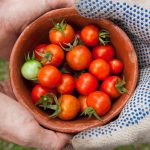We are created for communion with God and others—so what do we do in a time of social distancing? How do we experience connection during chronic shelter-in-place orders?
Many are looking to the flu pandemic of 1918 for understanding, but my mind keeps returning to the World War II bombings of London from September 1940 to May 1941.
While our current situation is not the same as being victims of a violent bombing campaign, there are some meaningful parallels. As others have said, the pandemic is waged by an invisible enemy. Rather than bombs falling from planes, we face microbes on surfaces or in the air we breathe. Rather than the horror of indiscriminate bombing destruction, we feel the panic of watching fellow humans die in our families and communities. The pandemic is not just affecting one city or one region; we are experiencing this shared trauma as the entire human race.
The pandemic is not just affecting one city or one region; we are experiencing this shared trauma as the entire human race.
Award-winning journalist and war correspondent Sebastian Junger helpfully highlights the work of Charles E. Fritz in the book Tribe. Fritz, an American sociologist and early developer of disaster research, was posted in England by the United States Strategic Bombing Survey. His task was to understand if the “London Blitz” and then later, the massive bombings in Berlin, were effective. Fritz found that, rather than destroying morale, the opposite transpired. Communities subjected to bombing campaigns became more unified in their resistance. Rather than panicking, Fritz observed that “people overwhelmingly devoted their energies toward the good of the community rather than just themselves.”
A theory eventually emerged for Fritz that disasters, whether manmade or natural, create what he called a “community of sufferers” and that this “allows individuals to experience an immensely reassuring connection to others.” In the midst of these terrors and threats, he observed that “class differences are temporarily erased, income disparities become irrelevant, race is overlooked, and individuals are assessed simply by what they are willing to do for the group.”
Longing to Belong
While Fritz’s theory of a united and equitable “community of sufferers” can sound utopian, there is something worth listening to here. Sebastian Junger’s work reflects on a phenomena he observed among veterans returning from the battlefield. His basic insight is that, while we might imagine that there is something wrong with the veterans, or those who have gone through disasters, the problem is often us. We are the ones who do not understand belonging and connection. We live in the isolation of disconnected silos, rather than deeply connected communities.
The Christian account of human flourishing is grounded in the idea of love: love for God and love for neighbor, with implications for how one relates to the earth and even to one’s self. That was how it was supposed to be. But sin has ravaged every one of those relationships.
The Christian account of human flourishing is grounded in the idea of love: love for God and love for neighbor.
In our fallen world, the church is meant to provide a space for God to realign our loves, bringing them back to where they were meant to be. The church is supposed to be the place where our shame and guilt before God can be addressed and overcome. The church, at its best, recognizes God’s relational design for humans and does not simply promote programs, but promotes shared lives.
It’s also meant to be the place where grace restores and unites neighbors who are not naturally drawn together. The community comes together, not because they are so similar, but because their Creator Lord calls them out of their difference to unite together in worship.
Now we hit the problem of this pandemic: What do we do when we cannot physically gather and enter into this unique space set apart by God?
Longing to Be Needed
In addition to highlighting the human need to belong, Junger captures another powerful human drive when he concludes: “Humans don’t mind hardship, in fact they thrive on it; what they mind is not feeling necessary. Modern society has perfected the art of making people not feel necessary.”
Think about the very young and the very old in our lives. Are we communicating to them that they are needed, or that they are merely vulnerable?
Many of us are feeling this in spades: we feel unnecessary, not needed, and disconnected. The one thing that was not “good” in Genesis 1 was human isolation. We were designed by the Creator for being-in-communion. Think about the very young and the very old in our lives. Are we communicating to them that they are needed, or that they are merely vulnerable? God made us for community and interdependence; God created us for mutual needed-ness.
Given the strange nature of this crisis, we are facing a second threat beyond sickness: we don’t even have one another. We need to be needed, and yet the natural ways we might care for others and receive their company and care are currently impossible for us. Rules about shelter-in-place and social distancing tempt us to draw even more inward, to face this despair and hardship alone. But we must courageously resist this isolation. Not by violating the government’s sober instructions, but by learning afresh to cultivate communion with God and neighbor in this surreal season.
We must courageously resist this isolation. Not by violating the government’s sober instructions, but by learning afresh to cultivate communion with God and neighbor in this surreal season.
We often don’t know what we are missing until it is gone. Sadly, most experts believe we are at the beginning of this crisis, rather than the end. Yet, even now, we can be reminded how important it is to belong and be needed.
Isolated Together
To return to my initial question, what do we do to fulfill our created need for connection? I think it’s helpful for us to be mindful of our relationships. We are created to be in relationship with God, with others, with self, and with the earth. We must not neglect our relationships in this season.
As the British people did in the 1940s as bombs dropped around them, we must not let fear paralyze us. Like them, we must fight hard for unity and equity and community. Let us call friends who we love and miss. Let us write notes of encouragement and empathy to those who are suffering or alone. Let us join our hearts through concrete expressions of generosity to churches, individuals, and organizations that desperately need us right now.
God promises that if we draw near to him, he will draw near to us. Let us pray, let us water plants, let us take deep breaths and employ our voices to reach out with words of value and courage and empathy. Let us speak—and listen for—life-giving words of mutual belonging.
May it be so.
“The Most Practical and Engaging Book on Christian Living Apart from the Bible”
 “If you’re going to read just one book on Christian living and how the gospel can be applied in your life, let this be your book.”—Elisa dos Santos, Amazon reviewer.
“If you’re going to read just one book on Christian living and how the gospel can be applied in your life, let this be your book.”—Elisa dos Santos, Amazon reviewer.
In this book, seasoned church planter Jeff Vanderstelt argues that you need to become “gospel fluent”—to think about your life through the truth of the gospel and rehearse it to yourself and others.
We’re delighted to offer the Gospel Fluency: Speaking the Truths of Jesus into the Everyday Stuff of Life ebook (Crossway) to you for FREE today. Click this link to get instant access to a resource that will help you apply the gospel more confidently to every area of your life.

































